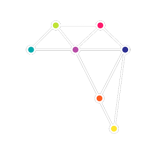
Why is this conference important for investigative journalism considering its fight against crime and corruption around the world?
-The number one target that investigative journalists face around the world, particularly in developing or transitioning countries, is corruption. It is the disease that infects everything else. If you’re investigating the environment, health care, education, politics, or the military, corruption is there, drawing away needed capital, corroding efficiency, and degrading public accountability and democracy. Our conferences reflect this, with a sharp focus on forensic tools and proven techniques to investigate corruption and lack of accountability. GIJN conferences are known for being very hands-on and practical. Our events are designed by journalists for journalists, and we know what our colleagues need in the field. We’ve got Pulitzer Prize winners, data journalism pioneers, cross-border specialists, and corruption experts waiting to share their secrets with you.
How do you make possible every two years to bring together hundreds of journalists, supporters, sponsors? What can you say about organizers and alliances?
-This will be our tenth conference in eight cities on three continents. Each conference is GIJN’s biggest project that year, and it requires a cross-cultural team to spend months planning and fundraising. The logistics of bringing a thousand journalists from a hundred countries to the other side of the world are considerable. But we have lots of help: the GIJN board, our 145 member organizations in 62 countries, our co-host (this year the Wits University Journalism Programme in Johannesburg), the broader global investigative journalism community, and lots of donors and co-sponsors. Our member organizations contribute by sending speakers and attendees. Our donors – foundations, major media, NGOs – provide us with funds for over 100 fellowships for journalists to attend. (We’ve had nearly 1,000 applicants already.)
Applicants may be wondering who is GIJC Fellowships’ material. Can you explain what kind of skills, traits or expertise are you looking for in GIJC Fellowships’ applicants?
-For fellowship applicants, we’re looking for either proven investigative journalists or, if you’re young and less experienced, a record that will show you know how to dig, use data, and care about social accountability. Investigative reporting is more than a craft; it’s a way of thinking, and that’s what we look for in candidates. You’ll need to have good English comprehension and demonstrate a strong commitment to investigative or data journalism.
Are fellows allowed to enroll in as speakers?
-Some fellows, if they are unusually impressive, may be asked to become speakers at one of the 120 workshops and panels at GIJC17. We also have a couple “lightning rounds” for shorter presentations that they can apply to do. In addition, the conference hosts a lively academic track with lots of slots for professors, and a dozen networking sessions that are open to everyone to meet colleagues, ask for help, and brainstorm story ideas.
Who will be the speakers? Are there any names confirmed yet?
-We’re still deciding on speakers! But there will be Pulitzer Prize winners like David Cay Johnston, Martha Mendoza and Marina Walker Guevara, BBC online detective Paul Myers, Columbia University’s Sheila Coronel and Giannina Segnini, and others from ICIJ, OCCRP, the Dart Center, IRE, and London’s Media Legal Defence Initiative. We will have Africa’s top investigative journalists and stars from Asia like India’s Govind Ethiraj and Indonesia’s Wahyu Dhyamika.
Why did you choose South Africa to host the 10th GIJC? How this event is expected to help promoting investigative journalism across the region?
-The local host of the Global Conference is chosen by GIJN’s membership through electronic voting. Each one of our 145 member organizations gets one vote, and they select from proposals that are submitted by other members. South Africa beat proposals from Amman, Jordan, and Vancouver, Canada. It’s the first time for the GIJC in Africa, so this is exciting for us. Our conferences help build capacity and strengthen networks in the host country. After our last Asia conference, in Kathmandu, Nepali data journalists from six media outlets banded together to investigate what happened to all the earthquake money that came to Nepal. Our post-conference survey of the Asia conference found that 93% of the attendees felt GIJN had helped increase their capacity as journalists, so the impact of these conferences is real. Also, our fellows are required to either do a presentation or write a story based on what they learned at the GIJC. This has resulted in 70 workshops and seminars, plus over 70 articles on investigative journalism, in 60 countries. We are extending the training impact of the conferences for months after they end.
